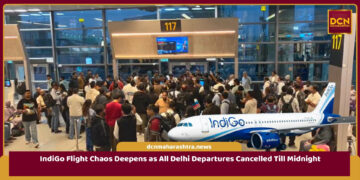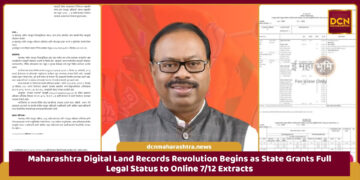Special Correspondent
Mumbai : The much-awaited elections to local self-government bodies in Maharashtra — including major municipal corporations such as Mumbai, Pune, Thane, and Nashik are set to be delayed yet again, with the polls now expected only in the new year. The Urban Development Department of the state government has issued a corrigendum outlining the multi-stage process of finalising ward (prabhag) formations, effectively pushing the timeline beyond Diwali.
Earlier, on June 10, the department had instructed all 29 municipal corporations, along with municipal councils and nagar panchayats across the state, to initiate the process of drafting ward boundaries. This responsibility was handed over to municipal commissioners, who were expected to submit the draft proposals directly to the State Election Commission (SEC). However, the latest clarification issued on Monday has laid out a more elaborate and time-consuming process, suggesting that the elections are unlikely to be held in 2025.
According to the new procedure, the municipal corporations—classified into A, B, C, and D categories—must now first submit their draft ward proposals to the Additional Chief Secretary or the Principal Secretary of the Urban Development Department. These drafts will undergo internal scrutiny, following which the department will forward them to the State Election Commission for preliminary approval. Once approved, the draft will be published by the municipal commissioners, and suggestions or objections will be invited from the public.
The next step involves hearings on these public objections, which will be conducted by officers authorised by the state government. Based on these hearings, the revised drafts will again be sent to the Urban Development Department and subsequently forwarded to the SEC for final approval. Only after this exhaustive cycle is completed will the final ward structures be officially notified and elections scheduled.
The process for D-class corporations is slightly different. In these cases, the draft proposals will first be submitted by the municipal commissioners to the district collectors, who will then send them to the Urban Development Department. Thereafter, the remaining steps—scrutiny, SEC approval, publication, hearings, and final notification will follow a similar path.
For municipal councils and nagar panchayats, the chief officers are responsible for preparing the draft ward proposals. These are to be submitted to district collectors, who will forward them to the Urban Development Department. Following approval from the SEC, the draft will be made public, objections and suggestions will be heard by the collectors, and the final ward structure will be notified by the respective chief officers.
This lengthy procedure, involving multiple layers of scrutiny, approval, publication, public response, and finalisation, all but ensures that the civic elections especially for the high-stakes Mumbai Municipal Corporation — will not take place before early 2026. The elections were originally expected in 2022, but have been repeatedly postponed due to the COVID-19 pandemic, OBC reservation-related litigation, and now procedural delays.
The delay has already sparked political controversy, with opposition parties alleging that the ruling alliance is deliberately deferring elections to avoid a public backlash. The government, however, maintains that the fresh delimitation process is essential to ensure transparency, fairness, and legal compliance.
In the coming weeks, all eyes will be on the Urban Development Department and the State Election Commission as the state inches forward through yet another round of bureaucratic steps before finally arriving at the poll dates now likely to be sometime in early 2026.















